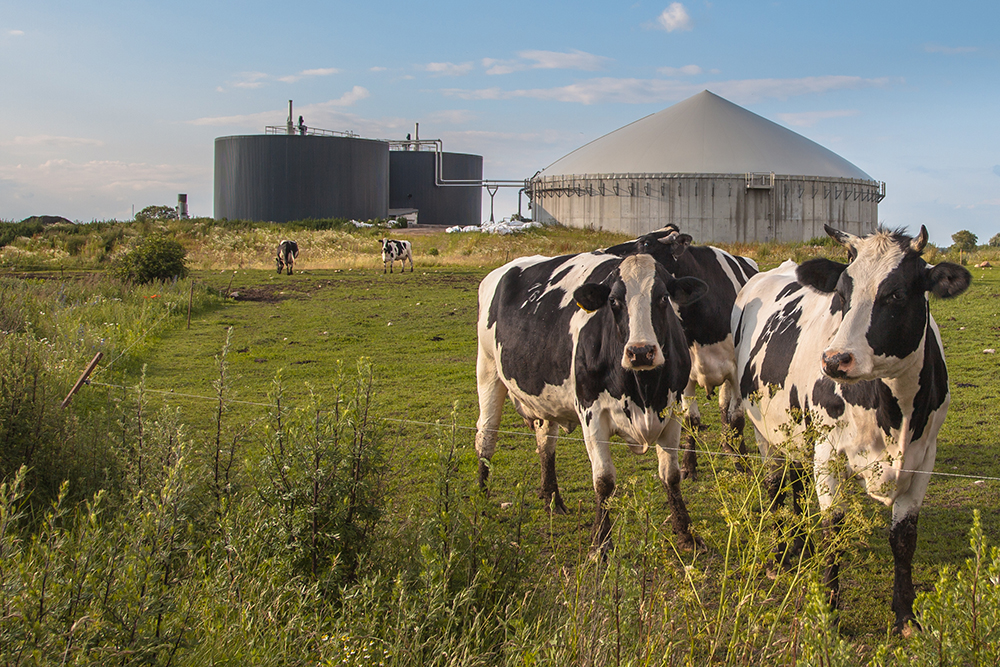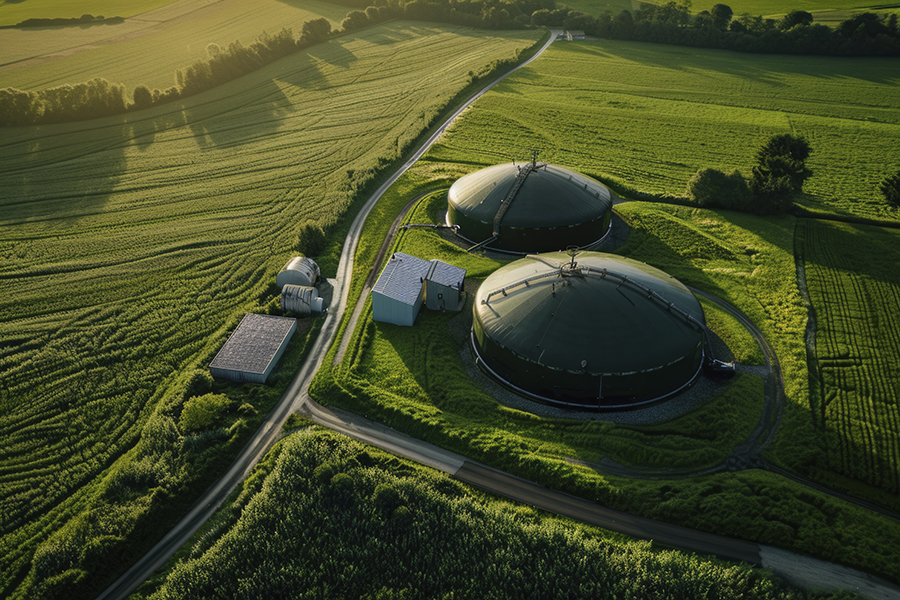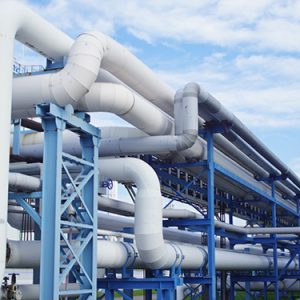Biogas
¿What is biogás?
Biogas is the gas captured during the natural fermentation of organic waste and biomass, preventing this gas from being released into the atmosphere, where it would have proven harmful effects on society and nature. This is achieved through a controlled fermentation process in the absence of oxygen, known as anaerobic digestion.
Biomethane (a renewable gas composed mostly of renewable methane) is the gas obtained once biogas is purified through the upgrading process, ready to be injected into the system or used directly.

By obtaining methane in this way, its uncontrolled natural production is avoided, preventing its release into the atmosphere with a greenhouse effect impact 25 times greater than the CO2 emitted when consumed after this process. Both are a source of renewable energy and prevent the emission of a significant amount of CO2 equivalent per ton of treated waste.
It is an efficient and ecological solution to produce energy while managing waste sustainably.What are the benefits of biogas?

It valorizes organic waste, preventing water pollution, bad odors, and greenhouse gas (GHG) emissions.

It generates manageable and storable renewable energy.

It produces biofertilizers from digestate.

It creates jobs in rural areas.

